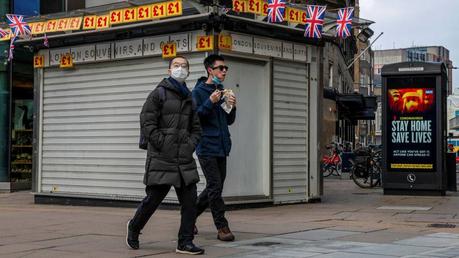
Small businesses in the UK are seeking advice on ways to escape dangerous levels of debt accumulated in government guaranteed loans during the Covid-19 pandemic, with some considering prepack administrations.
Begbies Traynor, the publicly traded restructuring company, said its analysis showed more than half of UK companies had "toxic debt" that they might struggle to pay off over the next 12 months.
Julie Palmer, a partner at Begbies Traynor, said she has seen an increase in inquiries about the prepackage process - an insolvency proceeding in which a company enters into a deal to sell assets before appointing directors. This can preserve value and leave admins able to continue to manage operations.
"The high percentage of companies with toxic debt in all sectors and the growing debt of UK companies is alarming," said Palmer. The number of business insolvencies rose to 1,446 in September, up 100 from August and 56% more than the same month last year, according to the Insolvency Department.
Small business debt rose last year after the pandemic forced many businesses to turn to government-backed bank debt to survive.
Last year, the UK government offered to guarantee bank loans through various support programs, with more than £ 75 billion in debt now backed by full or partial state guarantee. This includes around £ 47bn in so-called 'rebound' loans which offered up to £ 50,000 to struggling small businesses with relatively little red tape.
So far, banks have found that the proportion of problem loans in their "rebound" portfolios has been lower than initially feared, between 5% and 10%. However, Palmer said companies are only beginning to determine if they can afford the refunds. Creditors have also been slow to sue companies for their money - a process she says will accelerate now that the courts reopen.
Palmer said this will include the HMRC, which is to collect a year of deferred taxes at a time when other government support programs such as the holiday have ended.
Sectors particularly vulnerable to toxic debt include real estate and real estate, hotels, bars and restaurants.
"The longer they have no payment, the more likely they are to turn into 'zombie' businesses riddled with debt and trying to collect revenue to pay off that debt," said Brendan Clarkson, director of national creditors services at Begbies Traynor. .
The Bank of England warned this month that many businesses that took out emergency loans were at risk of collapsing.
"The increase in debt, while moderate overall, has probably led to an increase in the number and scale of the most vulnerable businesses," he said. "As the economy recovers and government support, including restrictions on liquidation orders, wanes, corporate insolvencies are expected to rise from historically low levels. "
The proportion of small and medium-sized businesses that paid 15% or more of their income to cover debt payments has increased six-fold since before the pandemic, the BoE said.
Meanwhile, many companies that have used the Coronavirus Business Interruption Loan Program (CBILS) and some that have used the Coronavirus Business Interruption Loan Program (CLBILS) are also facing more costs. high if the Bank of England raises interest rates because it has not set their repayment rate.

